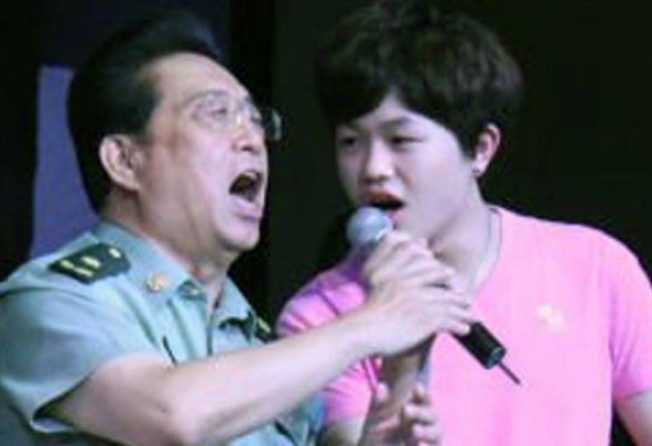Son of singer's gang rape arrest sparks debate on children of the privileged
Privileged upbringing blamed for minors who commit crimes with impunity while some warn of stoking social tensions

Many families have their black sheep but few have triggered so much public anger and hostility as the 17-year-old son of celebrity PLA singer Li Shuangjiang being held by police as one of five suspects in a gang rape.
It is not the boy's first brush with the law or public notoriety. Two years ago, he was convicted of driving an unregistered BMW without a licence and assaulting a couple after he rear-ended their car. It was not only the nine stitches to the head that the man had to endure, but the arrogance of the teen who dared them and witnesses to call the police as he laid into the couple.
The boy was sentenced to a year at a reform centre for juvenile delinquents and had only been released months before the alleged gang rape.
The blanket media coverage of the incident and intense scrutiny of the 74-year-old father and his son on the internet has left his mother begging for people to show the boy "tolerance" and allow him "room" to start a new life, but there is little sympathy.
While few people would deny underage offenders the chance for a fresh start, The Oriental Morning Post said that if the boy had committed such a crime just six months after his release from detention, it wasn't because of a lack of public patience and understanding.
Rather, it would be the result of the privileges such people enjoyed that made them feel they were above the law.
In contrast, the newspaper questioned why a man in Zhengzhou was detained for three days without charge for wearing a 6.3cm knife on a key chain while Li's son could drive around Beijing in an unlicensed car while carrying an imitation machine gun with impunity until the time of the assault.
"The public has not been intolerant," the paper said. "If anything, we members of society should rethink our silence towards the privileges that helped shape such twisted values in a minor."
The Qianjiang Evening Post argued the family already enjoyed considerably more "room" than others because of their social status - Li senior is dean of music at the People's Liberation Army Academy of Arts and holds the honorary rank of major general.
"The younger Li was an Olympics ambassador when he was five and even though nobody cared much about such an empty title, it shed light on how public resources were divided within a small circle without the public even being aware," the newspaper said.
But the Beijing Morning Post argued that by placing too much emphasis on the boy's family background and upbringing, the mainstream media risked turning these into excuses for the boy's behaviour and of turning him into a victim.
The newspaper said bad people existed in every strata of society and that focusing too much on the family background would make the case a fight between social classes. It warned that justice could fall into the trap of bowing to public pressure if all the media cared about was whether the privileged class had subverted justice.
"The public and press should discuss how a crime affects personal dignity and social order," it said. "They should reflect on and punish evil human nature while maintaining the personal dignity of victims and seeking social justice according to the law," the newspaper said.
The Beijing News called on the public to be more reasonable and respect the law when crimes are committed by minors.
While it was true Li Shuangjiang's son had committed one crime and was suspected of another, he was still a minor and the law stipulates that news reports, publications or the internet should not reveal the name, address, phone numbers of a juvenile offender. However, the junior Li's name and picture was everywhere on the internet or television.
The Guangzhou Daily called for a review of juvenile detention, which in this case appeared not to have worked.